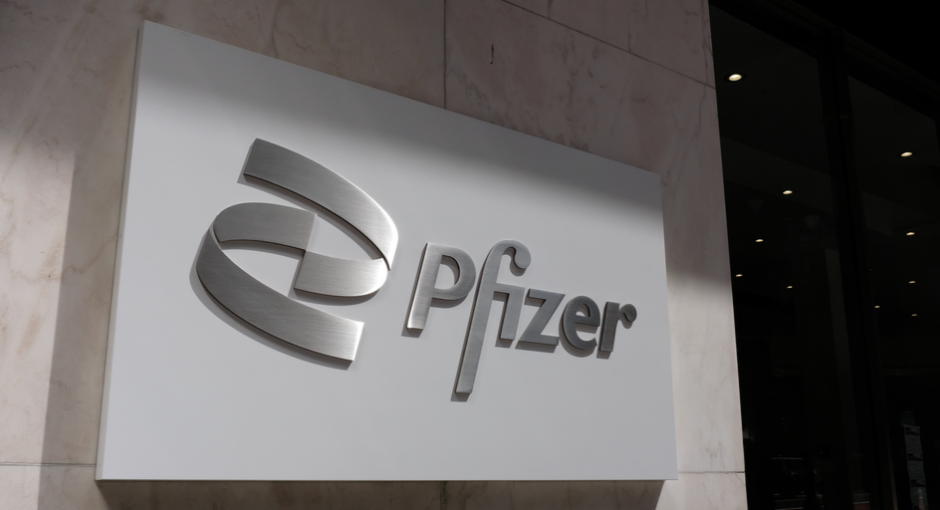UPDATE Friday, Jan. 28, 2022, 3:25 p.m.—The U.S. Health Resources and Services Administration (HRSA) said this afternoon it is reviewing Pfizer’s policy and will evaluate next steps as needed.
Pfizer today became the 13th drug manufacturer to impose conditions on 340B sales of prescription drugs involving contract pharmacies. Its changes take effect March 1 and affect hospitals only.
Pfizer’s new policy applies to its blockbuster immunosuppressant Xeljanz ($1.7 billion in U.S. revenue in 2020) and 11 oral oncology products including its blockbuster Ibrance ($3.6 billion).
“Federal grantees may have multiple contract pharmacy relationships. No action is needed by federal grantees,” the company’s Jan. 28 letter to covered entities said.
Bristol Myers Squibb announced limitations on 340B contract pharmacy two weeks ago. AbbVie and Amgen announced conditions in December. Nine of the 13 manufacturers that have placed restraints on 340B contract pharmacy have targeted hospitals. A 10th manufacturer, United Therapeutics, sells mainly to hospitals.
Pfizer has not responded to a request for comment.
The New Policy’s Details
Pfizer’s changes apply to Xeljanz and these oral oncology products: Bosulif, Braftovi, Daurismo, Ibrance, Inlyta, Lorbrena, Mektovi, Sutent, Talzenna, Vizimpro, and Xalkori.
Pfizer said beginning in March it will “require 340B hospital covered entities to submit limited claims data for their contract pharmacy transactions. When 340B hospital covered entities choose to provide the limited claims data for these products, Pfizer will enable multiple contract pharmacy shipments to those locations for the applicable products.”
The company said its new policy will let it “more effectively detect duplicate discounts and diversion that would otherwise go undetected.” It also said the policy “also represents a continued distribution preference” for 340B entities. Non-340B customers, it said, already cannot place bill to / ship to orders for Xeljanz and the oral oncology medicines “to locations not under common ownership with the ordering customer.”
Pfizer said it is using 340B ESP as its agent for 340B contract pharmacy designations and claims data submissions.
The letter says that on or after March 1, Pfizer will stop honoring 340B hospital covered entity bill to / ship to orders and contract pharmacy transactions that do not fit within one of the following four broad situations:
- Grantee covered entities can keep using their registered contract pharmacies and receive bill to / ship to deliveries at the 340B ceiling price.
- Contract pharmacies that are wholly owned by a 340B hospital covered entity or have common ownership with a 340B hospital will remain eligible to receive shipments of Xeljanz or the 11 oral oncology products on a bill to / ship to basis at the 340B ceiling price. For oral oncology products, the specialty contract pharmacy must be part of Pfizer’s oncology distribution network. Pfizer notified 340B covered entities about the network’s establishment in 2017.
- 340B hospital covered entities may engage in multiple contract pharmacy transactions,
when they choose to provide limited claims data to 340B ESP for product dispensed from their registered contract pharmacy on their behalf.
- A 340B hospital covered entity that declines to provide its contract pharmacy claims data and does not have an in-house pharmacy capable of dispensing 340B priced drugs to its patients can designate a contract pharmacy location using the 340B ESP platform. They can designate a single contract pharmacy location for Xeljanz and a single specialty contract pharmacy location for the 11 oral oncology products. The contract pharmacy for the oncology drugs must be part of Pfizer’s oncology distribution network.
Elsewhere in the letter, Pfizer said, “All 340B hospital covered entity hospitals approved for participation in Pfizer’s defined oncology distribution network [DON] remain eligible for 340B ceiling priced oncology products. Orders may be placed by covered entity hospitals with an approved Pfizer DON specialty pharmacy that is a wholly owned pharmacy co-located with the site of patient care.”
“Any 340B hospital covered entity that is not part of Pfizer’s defined oncology distribution
network may apply for participation in the DON,” the letter said. “It may also designate a single contract specialty pharmacy in Pfizer’s DON at one shipping address.”
“Strong Proponent” of 340B
Pfizer said in the letter that it “is a strong proponent of the 340B program.”
“We wholeheartedly support the goals for which the program was created,” it said. “As part of Pfizer’s commitment to uphold the integrity of the 340B program, Pfizer has been reviewing examples of, and evaluating the wider risk of, duplicate discounts and diversion that occur through contract pharmacy transactions. However, that process has been hampered by the lack of data transparency in contract pharmacy arrangements.”
Pfizer said its new policy will let it “uphold the integrity of the 340B program for all stakeholders.”


